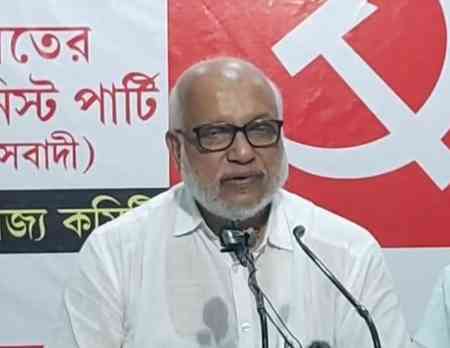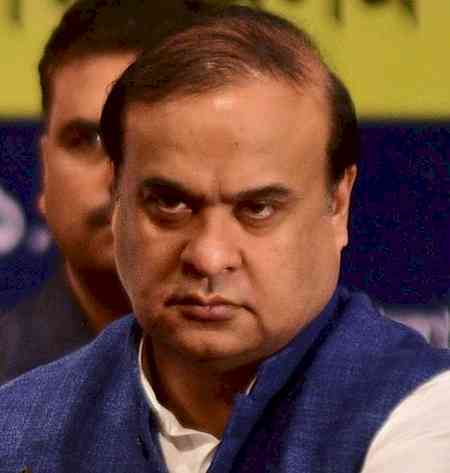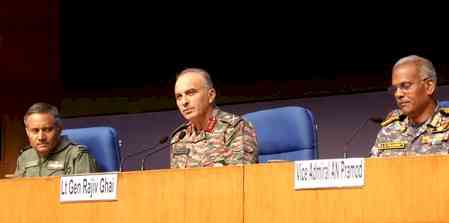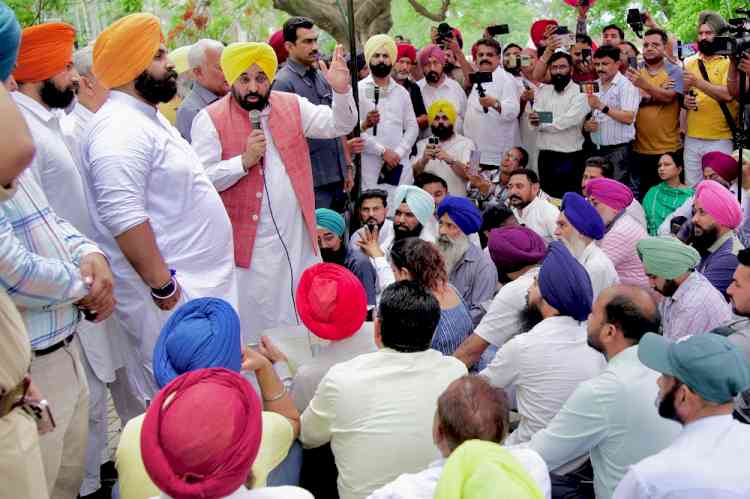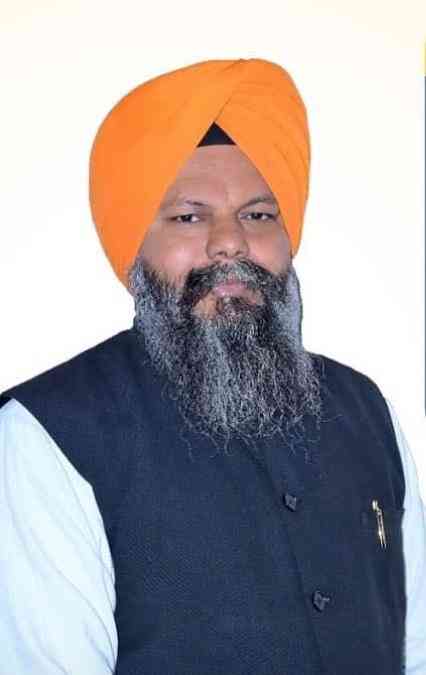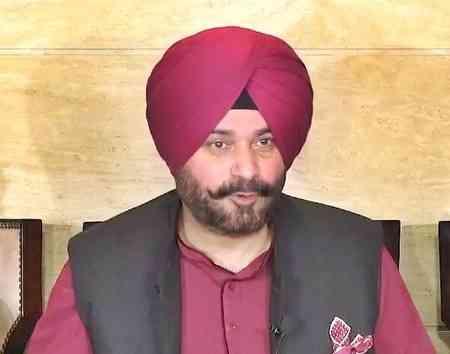Globetrotting Dalai Lama watches India's military might on television
Donning a Himachali cap, globetrotting Tibetan spiritual leader, the Dalai Lama -- an icon of 'ahimsa' and 'karuna' who has been in exile in India for over 60 years, on Thursday watched 74th Republic Day parade that showcased India's military might, cultural diversity and women's empowerment.
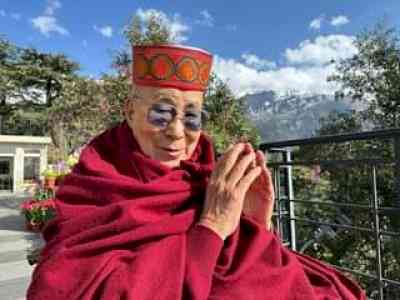
Dharamsala, Jan 26 (IANS) Donning a Himachali cap, globetrotting Tibetan spiritual leader, the Dalai Lama -- an icon of 'ahimsa' and 'karuna' who has been in exile in India for over 60 years, on Thursday watched 74th Republic Day parade that showcased India's military might, cultural diversity and women's empowerment.
"His Holiness the Dalai Lama, wearing a traditional hat from Himachal Pradesh, watching the Indian Republic Day celebration on TV at his residence in Dharamsala, HP. India, on January 26, 2023," a post on his official Facebook post said, posting his photograph too.
In his normal addresses, the spiritual leader is thanking the Indian government and people of India for the generous hospitality and kindness extended to the Tibetan people for the last over six decades.
The Dalai Lama has lived in India since fleeing China in 1959 after a failed uprising against Communist rule over Tibet. The government-in-exile named Central Tibetan Administration (CTA) is based in Dharamsala.
His Holiness the Dalai Lama often calls India the "Guru" and Tibet its "Chela" and refers to himself the "Son of India" and a true follower of Mahatma Gandhi.
He advocates the revival of India's ancient wisdom based on the Nalanda tradition.
His Holiness is often called the best ambassador for Indian values of non-violence, ahimsa and inter-religious harmony and the promotion of basic human values -- compassion and kindness.
The Buddhist scholar, known for his simplicity and typical jovial style and for whom Mahatma Gandhi is the most influential leader of the 20th century for his idea of non-violence, prefers to participate in meetings with religious leaders, and lectures students and businessmen on ethics for the new millennium and the art of happiness.
He believes India is the only country with the potential to combine its ancient knowledge with modern education.
Congratulating Himachal Pradesh Chief Minister Sukhwinder Singh Sukhu on being sworn in as Chief Minister last month, His Holiness said, "India has been my home for more than 62 years now and I have been happy to reside most of that time here in Dharamsala.
"Consequently, I often refer to the Chief Minister as 'our Chief Minister'. I deeply appreciate the friendship and hospitality that the people from all walks of life in Himachal Pradesh have shown me and my fellow Tibetans all these years.
"Like other places in the state, Dharamsala has grown and developed tremendously since I first arrived in McLeodganj in May 1960."
In 1959, the occupying Chinese troops suppressed the Tibetan national uprising in Lhasa and forced the Dalai Lama and over 80,000 Tibetans into exile in India and neighbouring countries.
On reaching India after a three-week-long treacherous journey, the Dalai Lama first took up residence for about a year in Mussoorie (now in Uttarakhand).
On March 10, 1960 just before moving to Dharamsala, which also serves as the headquarters of the exiled Tibetan establishment, the Dalai Lama said: "For those of us in exile, I said that our priority must be resettlement and the continuity of our cultural traditions. We, Tibetans, would eventually prevail in regaining freedom for Tibet."
Currently, India is home to around 100,000 Tibetans and the government-in-exile, which has never won recognition from any country.
(Vishal Gulati can be contacted at vishal.g@ians.in)


 IANS
IANS 
